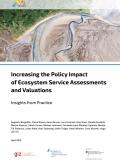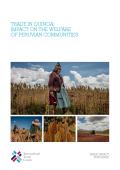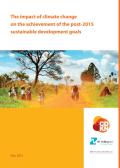
A high-ambition agreement that provides a clear policy framework for action on climate change, incentivises international cooperation, and mobilises additional resources for mitigation and adaptation activities is essential to give us the best chance of achieving the SDGs by 2030. Likewise, strong SDGs will help to lay the policy groundwork for achieving and implementing a more ambitious climate agreement.
This report, The impact of climate change on the achievement of the post-2015 sustainable development goals, considers impacts on development over the next 15 years, under two scenarios for the 2015 climate change agreement: a high-ambition agreement and a low-ambition agreement. It looks at associated policies and levels of investment in mitigation and adaptation. The high-ambition scenario used is based on the UNFCCC aim to limit global warming to a 2°C increase on pre-industrial temperatures.
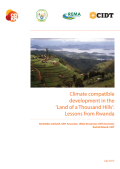
In the last decade, Rwanda has emerged as a leader in Africa for its efforts to integrate climate resilience and green growth into development planning and finance. This working paper charts some of the steps the Government of Rwanda has taken to become a leader in this area, namely:
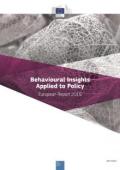
This report covers a wealth of policy applications either implicitly or explicitly informed by behavioural insights (BIs). It reviews institutional developments and puts forward a comparative framework (PRECIS) describing behavioural insight teams with six key features. The Report reaches four main conclusions: i) in terms of capacity-building, there is significant dynamism and growing appetite to apply BIs to policy-making; ii) links between policy-making and academy communities can be strengthened and analysing large datasets offers great potential; iii) systematic application of BIs throughout the policy cycle can advance evidence-based policy-making; iv) need of more research on the long-term impacts of policy interventions.
